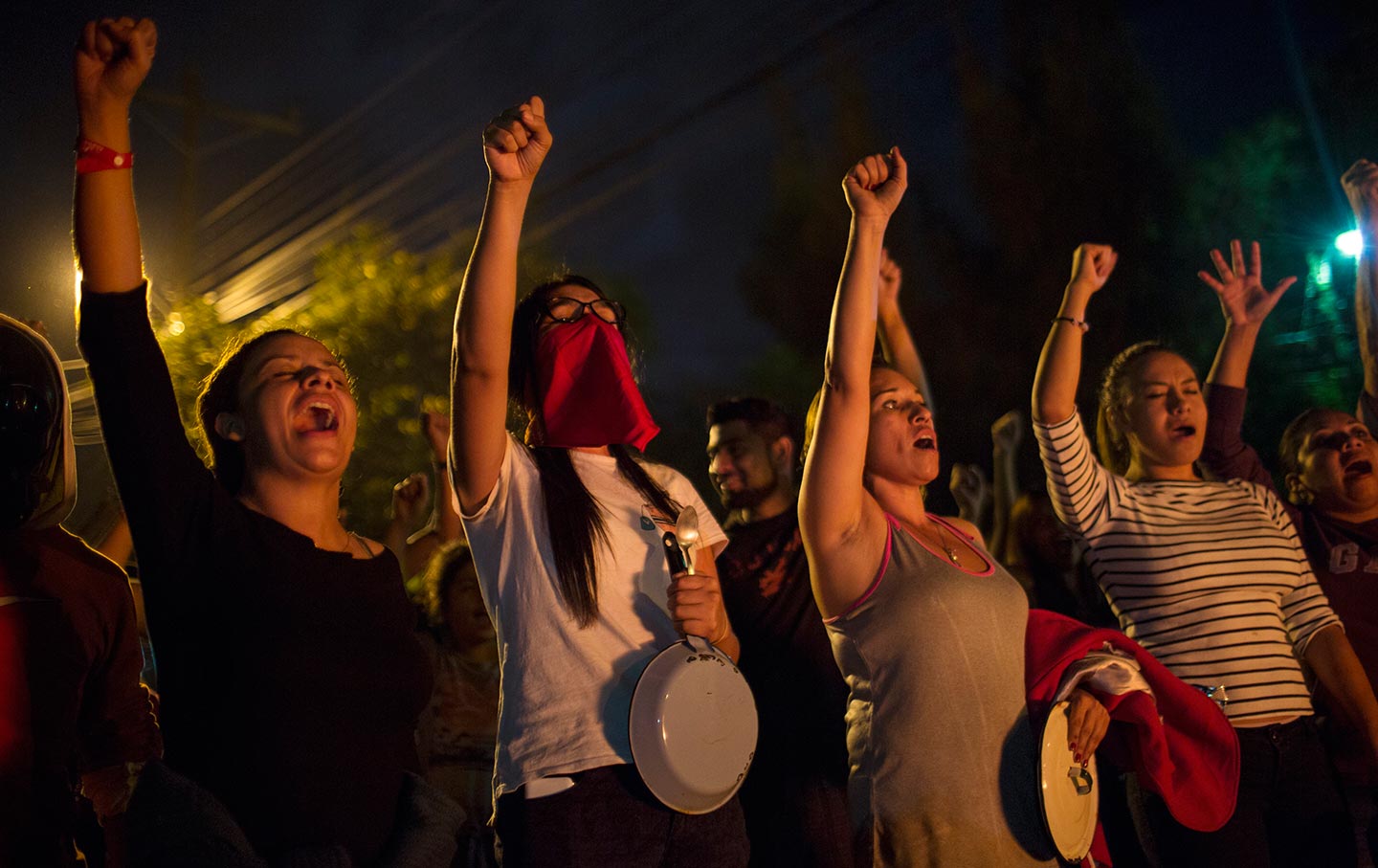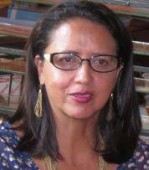Honduras will have a President by force of bayonets
by Dina Meza Translated from Spanish by Katherine Wingfield-Dobbs. / January 5, 2018 / No comments

Protesters in Tegucigalpa. Photo by Rodrigo Abd (AP).
Honduras faces one of the worst political crises – deepened by the elections of November 26, 2017, which have been seriously questioned not only by the opposition but by observers, such as the OAS who have recommended that the elections be repeated due to the irregularities found.
According to unreliable data from the Supreme Electoral Tribunal (TSE), the current President of the Republic, Juan Orlando Hernández, who presented himself at the elections to be re-elected to office illegally, obtained 42.9% of the votes and Salvador Nasralla, the Political Opposition against the Dictatorship candidate, 41.4%. The Liberal Party candidate, Luis Zelaya, won 14.7% of the votes.

- Honduras has one of the world’s highest murder rates. It is also one of the most dangerous countries to practice journalism, ranking 129th out of 180 in the 2014 World Press Freedom Index. Journalists are regularly threatened, attacked, and killed for their work. The Honduran government fails to punish those who use violence against reporters, essentially granting them impunity. This space will be dedicated to examining the lack of protection for Honduran journalists exercising their profession. Topics will include the use of state-sponsored advertising as a mechanism to reward or punish publications, and censorship and self-censorship as hindrances to democratic progress.

- Born in Cofradía, Honduras, Dina Meza has been recognized by PEN International, Amnesty International, Index on Censorship and Reporters without Borders for her work as a journalist and human rights advocate. Currently, Dina is the driving force behind the creation of Honduras PEN Centre. In 2013, she wrote “Reign of Terror,” an in-depth report on threats to Honduran journalists for Index on Censorship’s magazine. In 2014, she was named one of Reporters Without Borders’ “100 Heroes and Heroines of Information.”
On 26 November, the TSE gave the first count which indicated a Nasralla gain, but that stage was suspended for several hours, citing problems with the system. On returning, Juan Orlando Hernández inexplicably lead in the results, which generated significant repudiation by citizens who came out on to the streets and who still haven’t left them because they believe that there was an electoral fraud favoring Hernández, who is considered a dictator.
Faced with popular protest, the response has been close-range attacks with live bullets by the Military Police for Public Order, police and soldiers from the armed forces. The results of these actions have already left 27 dead, more than a thousand detaineed and dozens wounded.
Demonstrators in the Sula Valley, formed along the north coast of the country and El Progreso, Yoro, have taken to the streets from all points of the compass; obstructing the passage of vehicles, which has impacted private companies who must take a decision to stop this electoral fraud and force the departure of Hernández, who rushed to publish the results from the TSE that provided him with a new mandate in the official daily, La Gaceta.
In the nation’s capital there are intermittent actions: taking of streets and protests, are part of the action. However, the repression has reached another stage, as dangerous as the first, of selective mass repression.

Opposition supporters hold a Honduran flag as others lie on the floor in front of security forces. Image via REUTERS. Photo by Jorge Cabrera.
As Hernández prepares to take over again as President, despite the delegitimisation, he announces a national dialogue which has begun with his allies, civil society organizations which are his puppets and churches that are at his service in exchange for canonries.
He rejected the recommendation of new elections by the OAS and mounted a media campaign to discredit this body on the grounds that it is interfering in the internal affairs of Honduras.
On the other hand, the United States have taken a leading role in supporting Hernández, ignoring the preliminary reports from the electoral observations. It is not strange that the country to the north, accustomed to deciding for Hondurans and seeing the country as their backyard, is stubborn in anointing Hernandez again in the presidential seat. Fraud is not important to the USA, rather someone that will take care of their interests and what better way to ensure that than with someone they can influence in exchange for protecting him in office.
What is important to note is that Honduran citizens began to lose their fear with the coup of 2009 and this time are not so willing to tolerate the imposition. Military operations to weaken their resistance have not been effective so far, but creativity is one of the things that has kept up resistance to the imposition.
Youngsters are at the forefront of the protests – we see young people who are even willing to lay down their lives to avoid another disaster for the country with someone who changed the law first to permit re-election and now to regain power without winning the elections.
The institutional framework is so decimated and under the control of the President that it is unable to punish violators of human rights but, as always, is ready to criminalize social protest. This has a legal basis which was constructed gradually – very likely President Hernández was already sure that there would be popular rejection of a win without winning. Fraud was also a planned action.
Between the calls to a fictitious but mediatic dialogue, social protest and the recommendation of new elections by the OAS, the road ahead looks rocky… we’ll see what happens.




